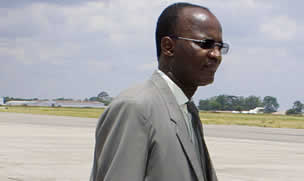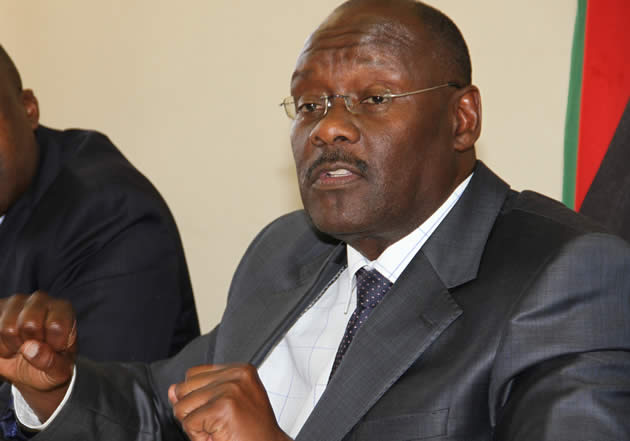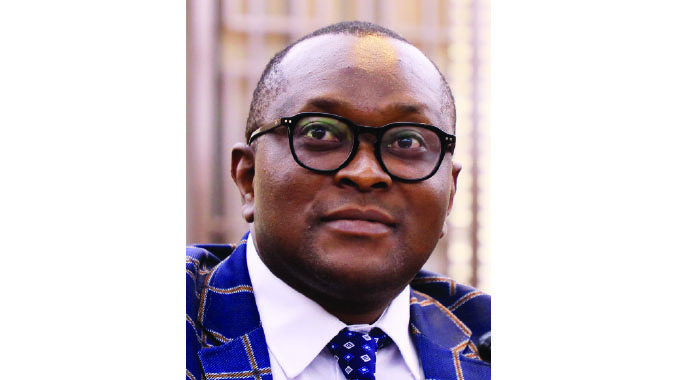Prof Moyo tours Reuters

Herald Reporter
The provision in the Access to Information and Protection of Privacy Act, which leads to the arrest and prosecution of journalists for publishing falsehoods is unnecessary, Information, Media and Broadcasting Services Minister Professor Jonathan Moyo said yesterday.
Prof Moyo was speaking during his tour of Reuters offices in Harare in the company of his deputy Cde Supa Mandiwanzira as part of his visit to media houses.
He said it was “odd” to use laws to make journalists to become professional.
“We believe the time has come for us to be in good terms with everyone,” he said.
“That is why as Government we invite everyone to participate in our programmes.
“Even this notion in AIPPA that if a journalist publishes falsehoods he should be arrested and prosecuted is unnecessary, he said.
He also went on to say that journalists must behave as professionals.
Prof Moyo pledged to facilitate easy access to Government departments by foreign news agencies operating in the country.
He said for Government to fulfil the promises it made to the people during election campaigns, it had to work closely with media houses, including foreign agencies.
This came after Reuters staff raised complaints that they were having difficulties in accessing Government ministries.
“You are Reuters, but you are established in terms of the law and you are accredited and you should be able to function,” Prof Moyo said.
“I think if we play our part and you do yours this problem of access will be a thing of the past.
“There will be access and this is a conviction and expression made by Government without anyone putting pressure and it is inspired by the fact that Government enjoys quite a considerable mandate. If we were not collaborating because you were pursuing politics, we will now collaborate quite seriously and you can count on us facilitating access.
“If previously we were not engaging because of politics be best assured we will be your partners.”
Government accountability, Prof Moyo said, would be possible if the State cooperated well with all media houses.
“This Government will be held accountable to the pledges it made in the election manifesto, pledges which have been translated into policy,” he said.
“It is understood that part of the accountability will come out of our engagement with media. Unless there is access, it is impossible to have that accountability.
“Where there is a challenge we will be happy to facilitate and we are here because we recognise the role that you play.”
Prof Moyo said for Zim Asset, the economic blue print expected to guide the country for the next five years, to be successful, concerted efforts were needed.
“For the first time we have had the Government coming out of an election formulating a policy that is well thought out, well-grounded and because it is a product of consultation and engagement, well received,” he said.
“The feed-back we have so far is that as compared to earlier similar efforts, this one has the best chance of success because it is practical and is grounded in a framework that seeks to achieve results.”
Prof Moyo said all media organisations and foreign agencies were a unit and should not be divided by political issues.
“There ought not to be a difference between foreign agencies and local players because the foreign ones are in Zimbabwe covering the Zimbabwean story and we expect them to do so professionally, ethically and with integrity,” he said.
Prof Moyo commended Reuters for establishing The Source which focuses on financial news rather than politics, adding that news organisations existed to make money.
He said for the past 13 years, the country had not benefited from the political news that media houses published.
“It has not benefited us in the sense that it has polarised and divided us and made us focus on narrow issues,” he said.
“If you want to make money, you must follow the money. Hopefully as we move forward, the other struggling media houses will take a leaf. They are struggling because they want to make money, but they follow politics. They have never understood that that is not the heart of the business.”
Cde Mandiwanzira said Reuters should extend its training programmes to other media houses in the country.
“I for one am a beneficiary of the Thompson Foundation training and I hope that training will be extended to the entire industry because we can only develop by constant and continuous training,” he said.
“With the opening of new institutions and licensing taking place because of digitalisation, there will be a market for content.
“Those who take a leap now will be better positioned to enjoy the opening up of the industry.”
Prof Moyo has since toured local media houses such a Zimpapers, ZBC, Alpha Media Holdings, Associated Newspapers of Zimbabwe, Modus Publications and New Ziana.








Comments